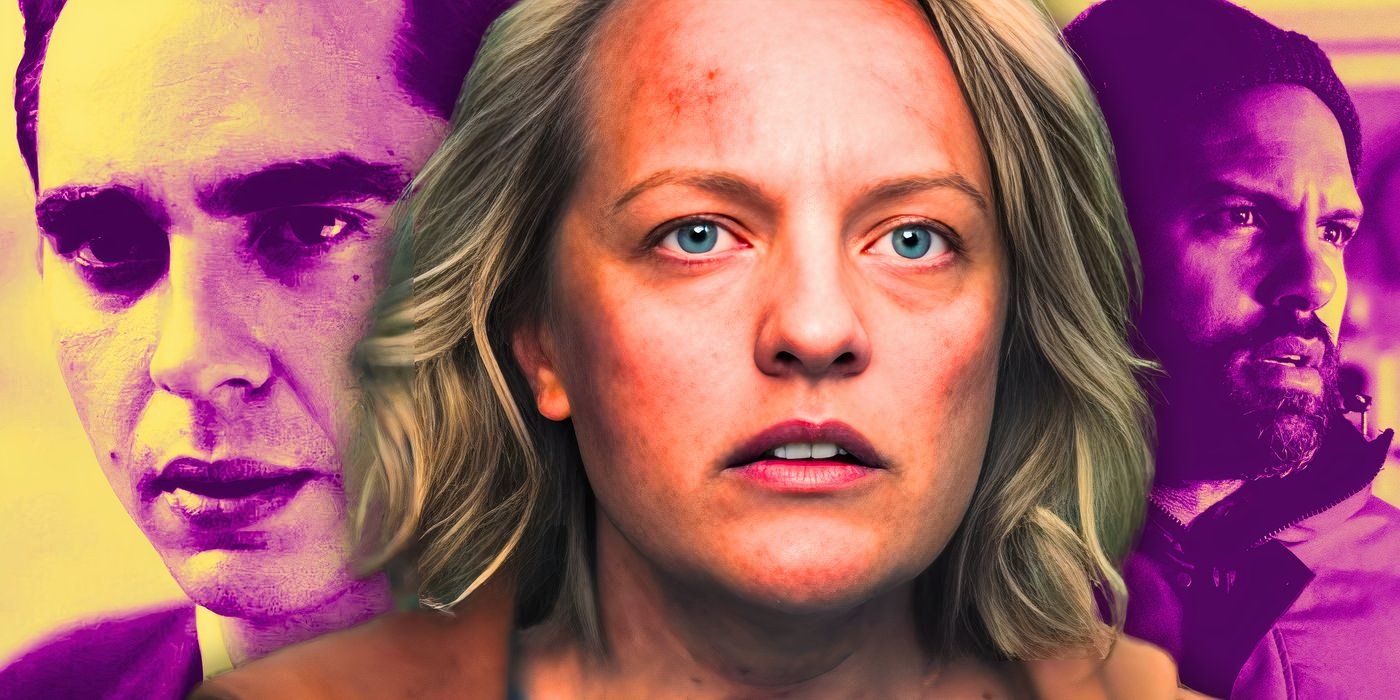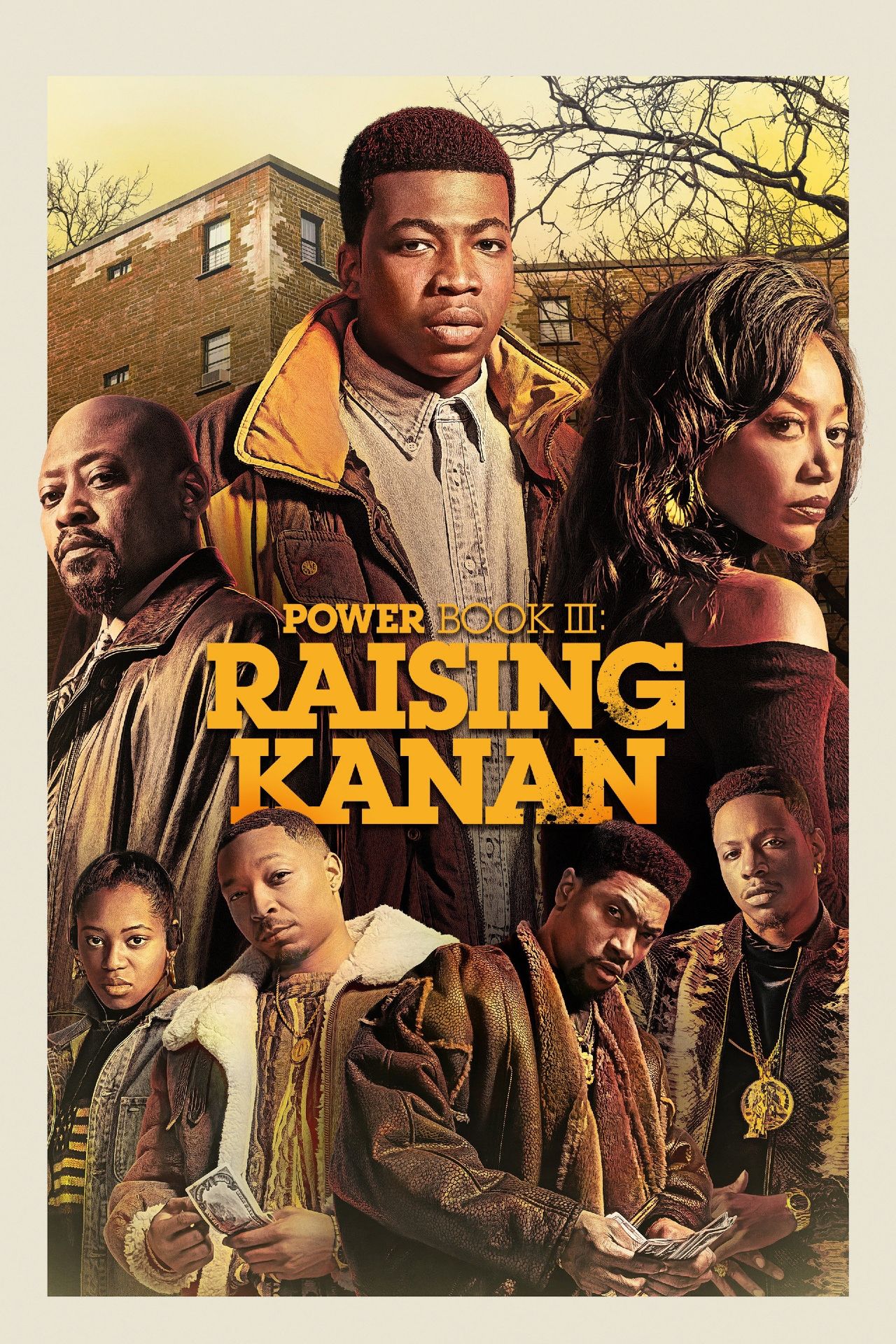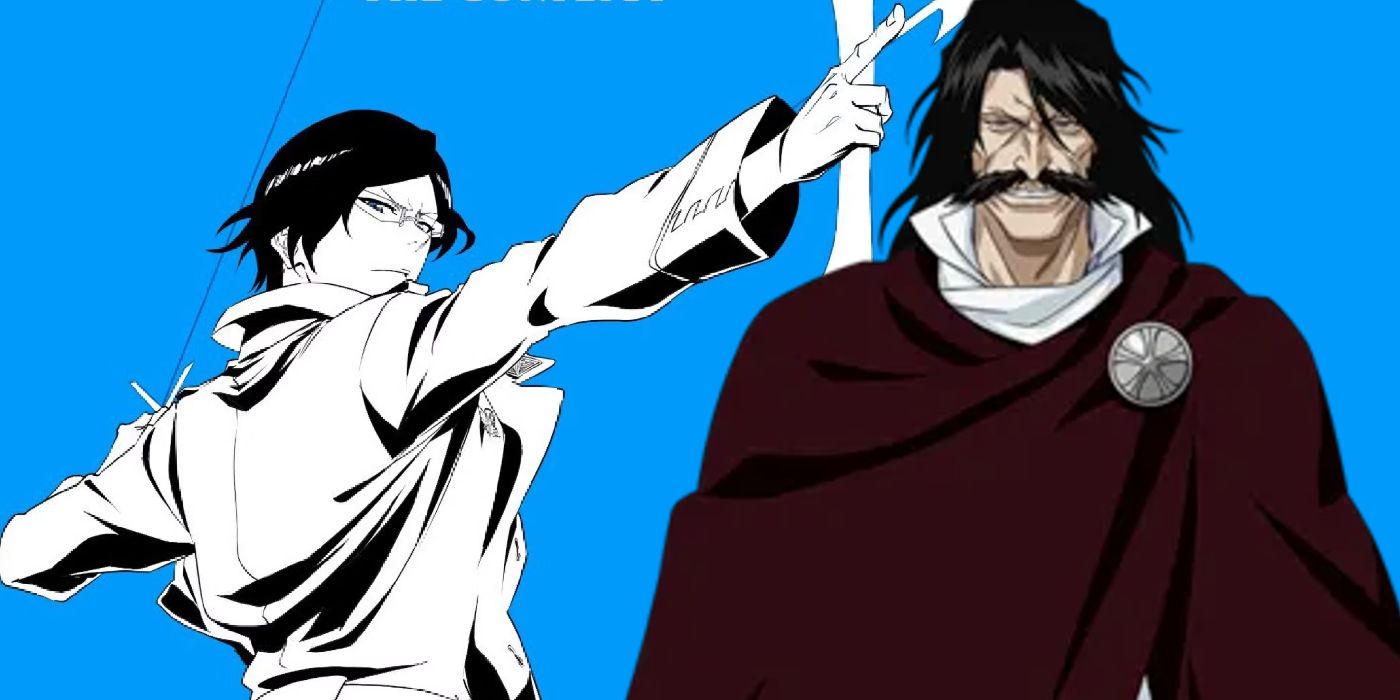Good Omens premiered this weekend and featured a huge cast of heavenly (and some not so heavenly) creatures. Neil Gaiman and Terry Pratchett’s apocalyptic comedy lead by David Tennant and Michael Sheen introduces angels, demons, the antichrist and, as any good apocalypse story should, the four horsemen.
When the antichrist is born and Heaven and Hell start gearing up for the end of the world, part of the path to war includes calling on the Four Horsemen, the traditional harbingers of the apocalypse, which, Biblically, includes the death of one quarter of the human population at their hands and on the show, they’ll presumably help bring about the end of the world/humanity while the angels and demons fight for celestial dominance. Historically, they’ve been War, Famine, Pestilence and Death, but by the time Good Omens takes place, Pestilence has retired in the age of penicillin and Pollution has taken his place. Neither Heaven nor Hell knows who exactly calls for them to appear, but someone does sound the alarm and outsources their summons to a very special Fed-Ex like service that delivers everywhere – literally.
The International Express Man (Simon Merrells) makes three long journeys and one very short one during the course of the series, delivering sacred items to each of the Four Horsemen and setting them on their final journeys. The bloodthirsty quartet don’t appear to serve any master but their ultimate mission, and they arrive like clockwork just as Adam, the antichrist really starts leaning into his powers and his desire to remake the world. Each one brings their own unique talents to the task, and they all ultimately play a key role in Good Omens’ climax.
Good Omens’ First Horseman: War
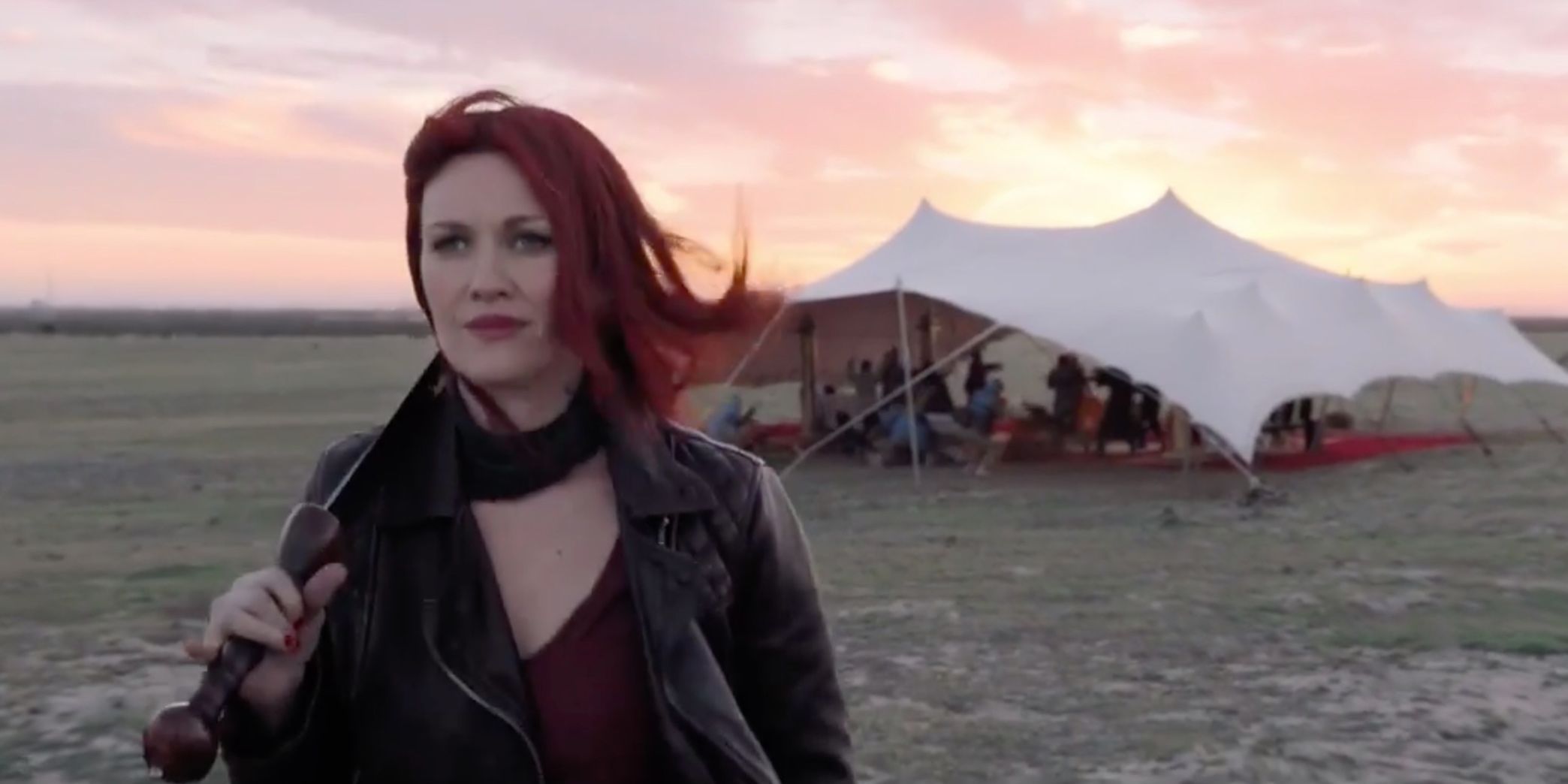
Played by Mireille Enos, War takes the form of a war correspondent for fictional newspaper National World Weekly. When the International Express man catches up with her, she’s hanging out in Northern Africa, watching three warring parties attempt to make peace. She barges into the proceedings and introduces herself as Carmine Zinderberg, easily stealing attention from the three heads of state and the backup forces. Within the space of a few minutes, she’s compelled them to squabble over who signs the treaty first, causing a breakdown in all negotiation and revived hostilities.
The International Express man delivers sword to her in the middle of all this, which, perhaps unsurprisingly, is the traditional weapon given to War when the Horsemen are detailed in Revelations. Like all her brethren, she’s gleeful when she gets the news that the apocalypse is nigh, and immediately leaves the doomed peace summit, sword in hands, to join her friends. God (Frances McDormand) explains that War has amused herself in the 60 centuries since her birth waiting for the apocalypse by killing people and compelling people to kill each other. She leaves chaos and death in her wake and is utterly tickled when she realizes she’s finally going to be able to serve her purpose.
Good Omens’ Second Horseman: Famine
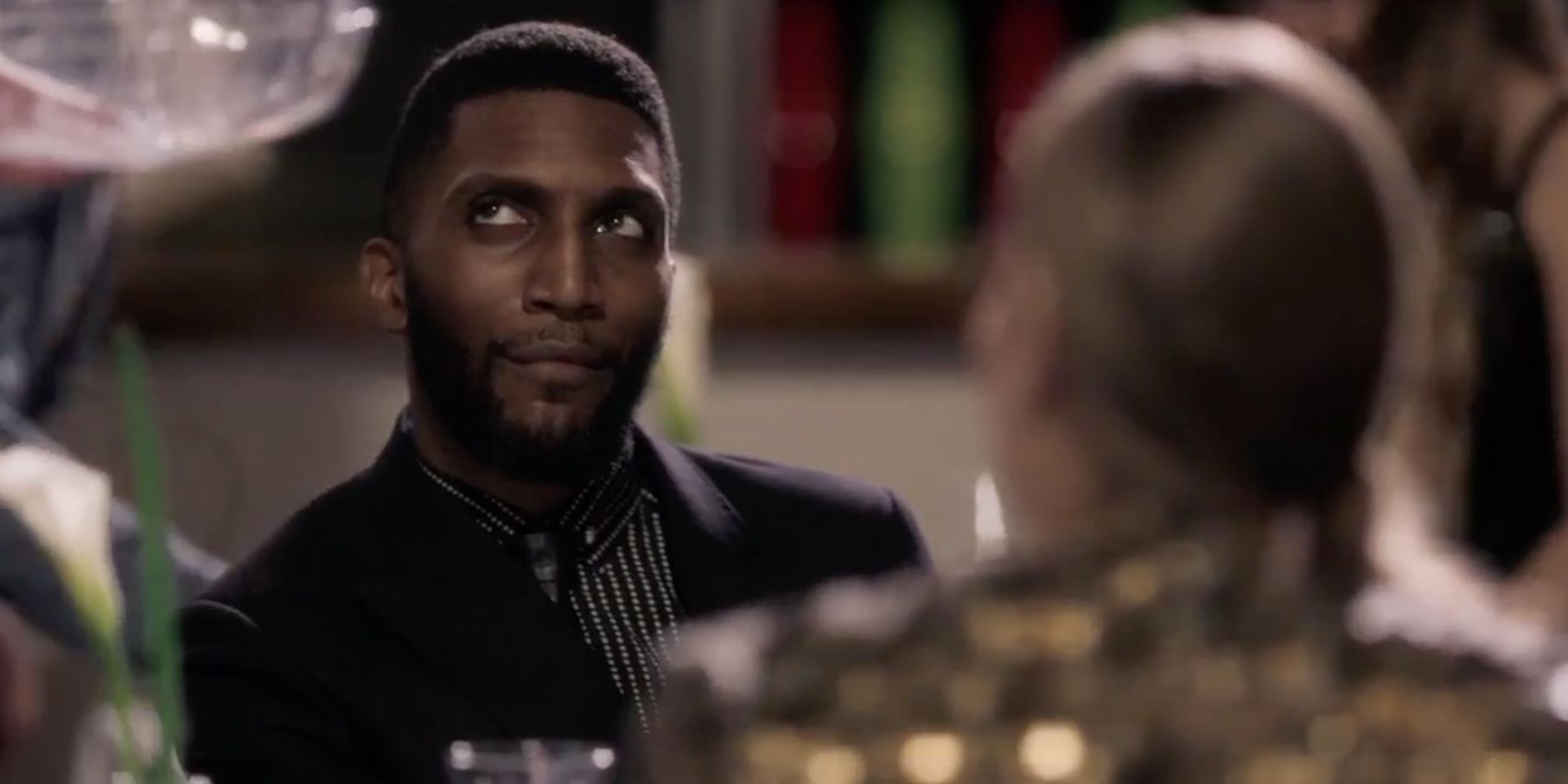
Yusef Gatewood plays Famine a.k.a. Dr. Raven Sable, a businessman who loves watching people starve, but not quite in the way you think. Sure in the 60,000 years he’s also been waiting for the apocalypse, he’s probably helped people literally starve to death, but in the 21st century, he delights in watching people eat nothing. His presence is more of an indictment of modern diet culture and societies that obsess about being thin in lands where food is plentiful. We first encounter him in a fine dining establishment that presumably charges exorbitant amounts for meals that include courses of lavender flavored air and chicken-flavored foam. It’s funny because it’s true.
He also owns a chain of restaurants in which he plans to roll out his new, completely artificial food substitute, Chow – a feature that’s included in the book, though the television adaptation skips over Famine’s supernatural powers including making those he passes by feel literal hunger pangs. Chow food that looks like actual food, but has zero nutritional content – burgers that look like burgers, but are in fact, total roughage. It could also be interpreted as a pointed statement about modern food deserts and the lack of nutrients in a huge portion of mass-marketed fare. The International Express man finds him in Des Moines, Iowa and delivers a set of scales to the good doctor as a signal that his time has finally come. The scales are Famine’s Biblical gift and symbolize that famine will ravage the Earth during the apocalypse due to the rising prices of food.
Good Omens’ Third Horseman: Pollution
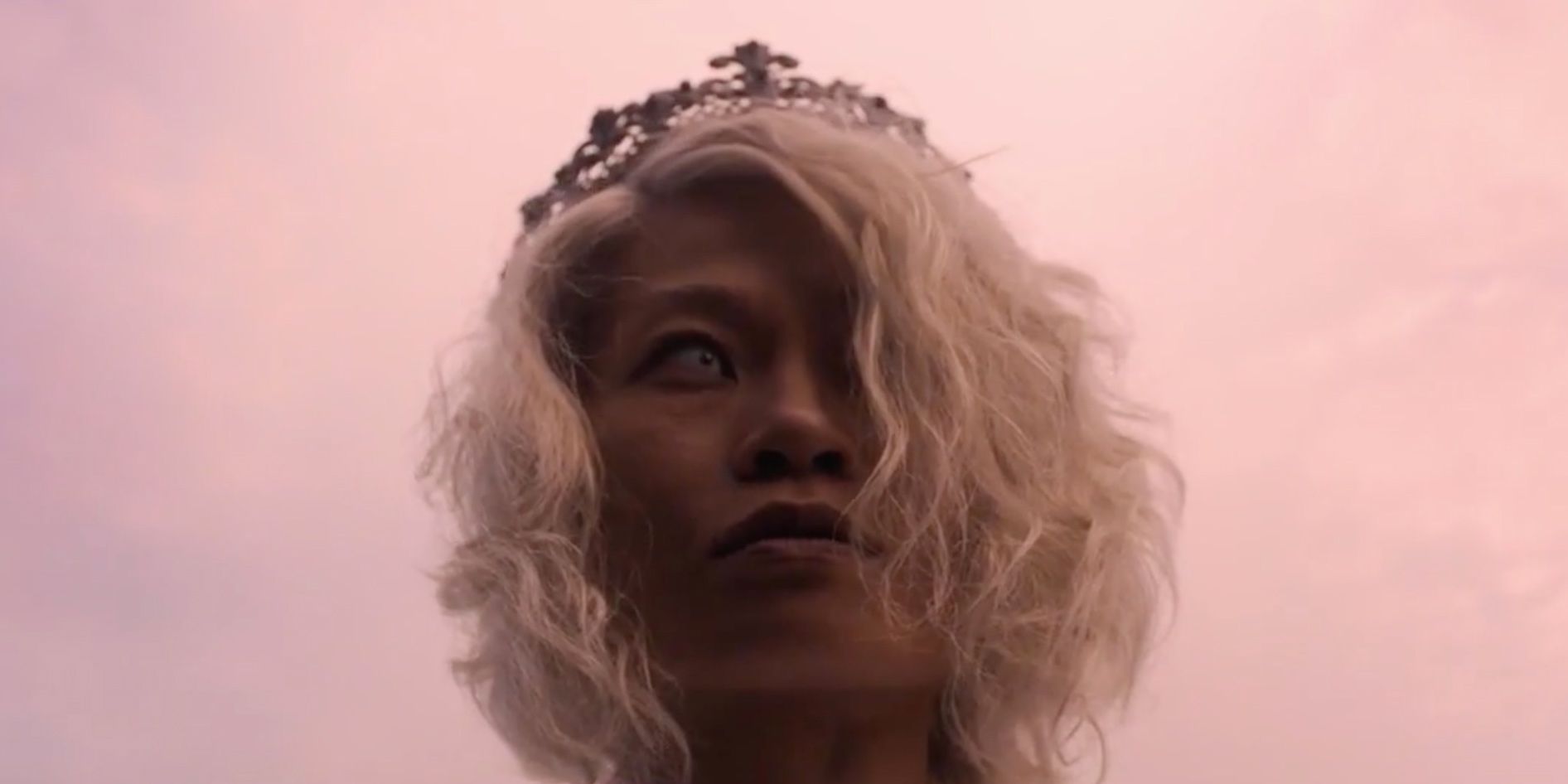
The third horseman is Pollution (Lourdes Faberes), and according to God, they’re responsible for just as many deaths as War or Famine. They helped design the internal combustion engine, plastics, and high tech weed killers, and when the International Express man arrives with their package, they’re sitting benignly by a Sussex stream that is so clogged with litter it barely flows any longer. They’re dressed in a white sweatsuit that’s sullied with black smoke patterns and when they sign for a package, a petroleum-like substance oozes from the pen. They receive a crown that immediately turns from gold to black the minute they touch it.
There is no Biblical parallel to Pollution, for obvious reasons. Back when John of Patmos was composing Revelations, pollution wasn’t a huge issue, but plague certainly was. Replacing Pestilence with Pollution is a nod to a world in which humanity has made great strides in eliminating deadly diseases, the modern industrial age has eaten up that progress by poisoning both humanity and the planet. Satan must certainly be proud.
Good Omens’ Fourth Horseman: Death
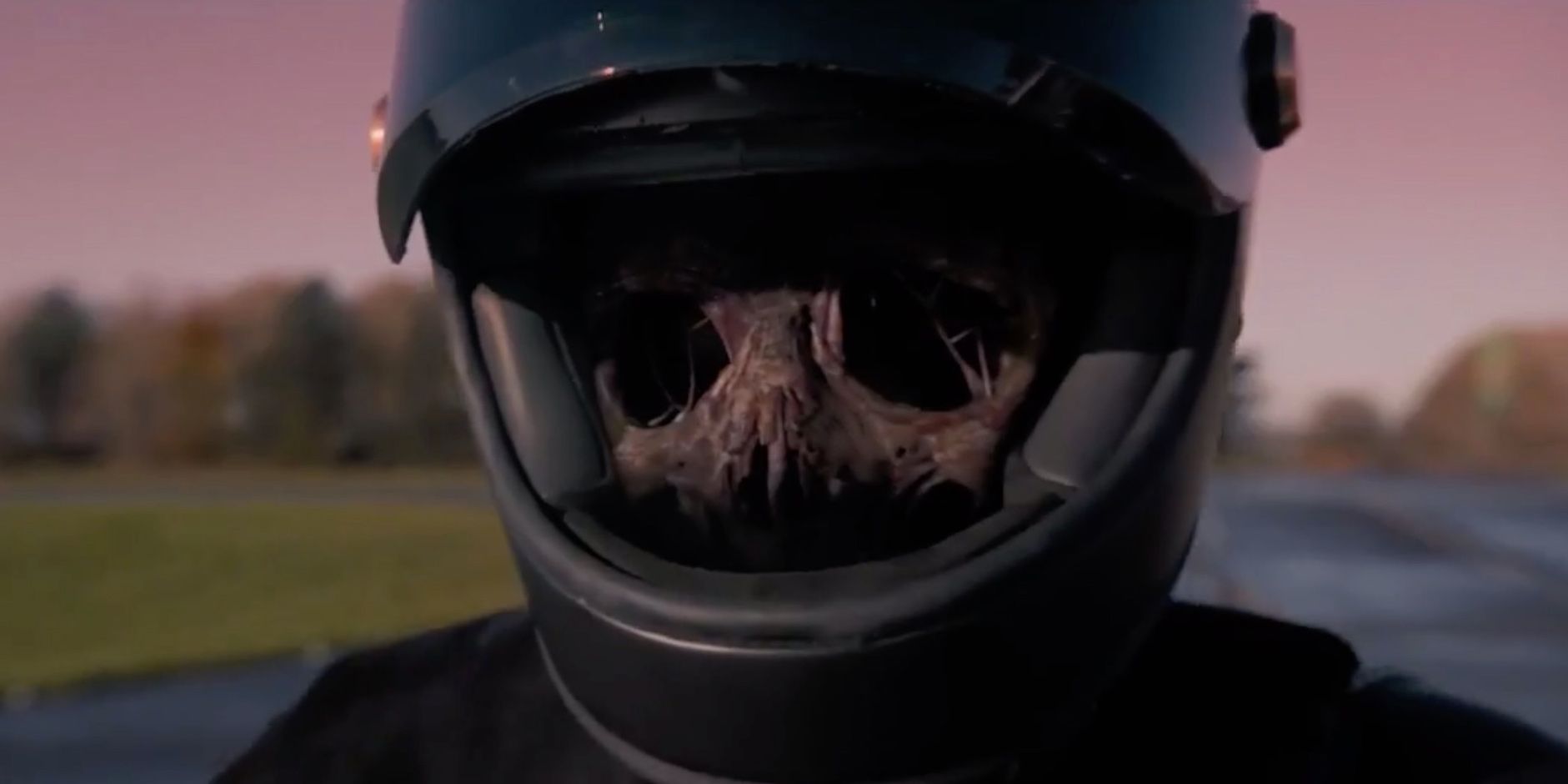
Brian Cox voices the most well-known of the Four Horseman, and we’re not talking about his character on Succession. He rides on a pale motorcycle and the International Express man doesn’t deliver an object to him, just a note. It reads, “Come and see,” a quote from Revelations that’s said by a disembodied voice as Death arrives on a pale horse accompanied by Hades. He’s unique among the Four Horsemen on Good Omens as well. He doesn’t have a face, per se, but instead the skull that he commonly wears in most artistic depictions.
And he also isn’t as vulnerable as the other three considering Death is the one element represented in the Four Horsemen that can’t be vanquished by humans. It’s possible, though it may seem like a long shot, that we’ll one day eliminate War, Famine, Pestilence and/or Pollution, but unless actual divinity intervenes, Death is one horseman that’ll ride forever.
The Mission of Good Omens’ Four Horsemen
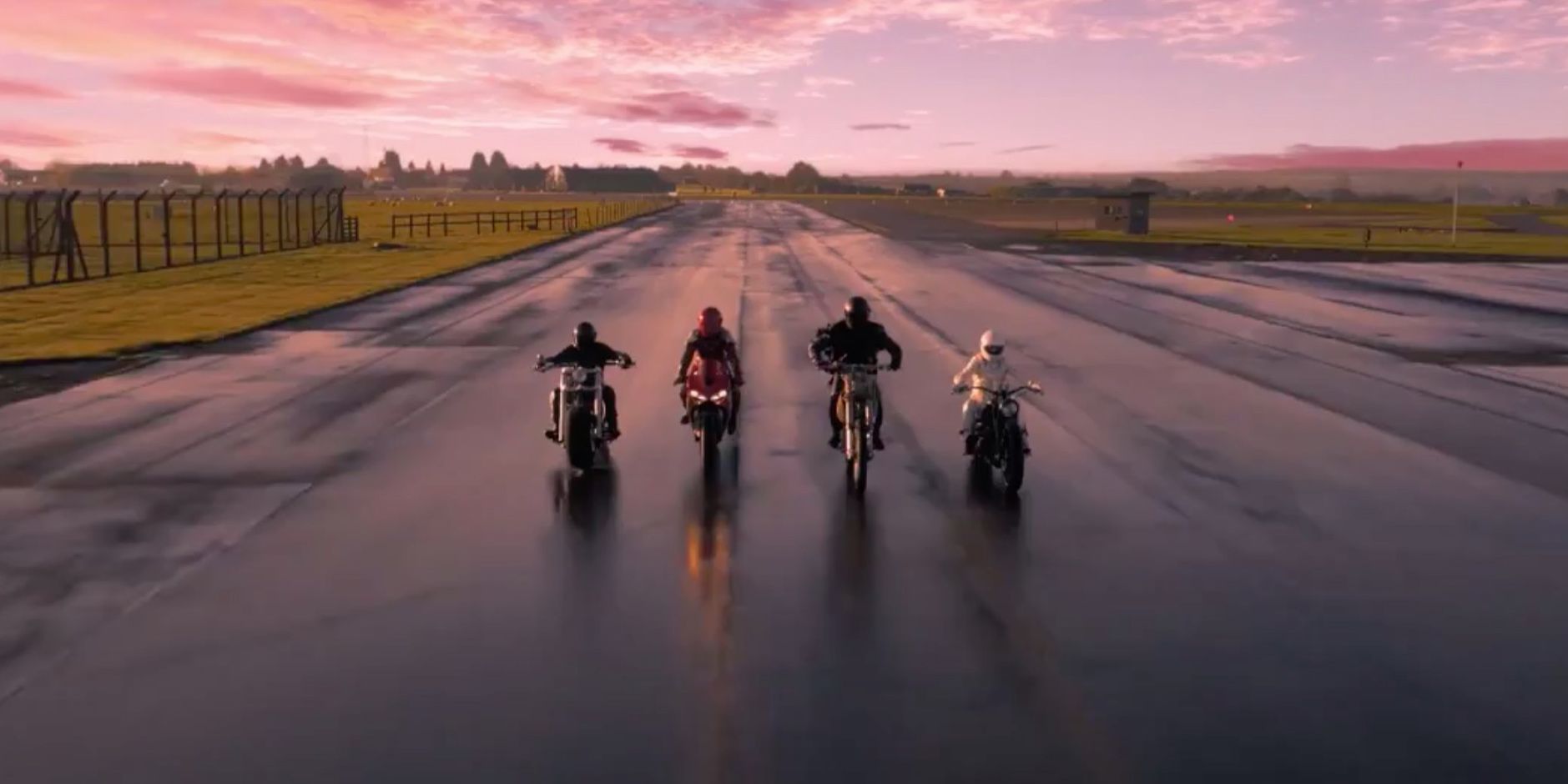
Broadly, the mission of the Four Horsemen is to kick off the apocalypse. Both angels and demons are excited for their arrival (aside from Aziraphale and Crowley [Michael Sheen and David Tennant], of course) because it means the factions can finally start the definitive battle that will end with one side finally declaring victory. Good Omens is very clear that there are no heroes in that battle – Jon Hamm’s Gabriel and his band of angels are far less concerned with the good of humanity and far more concerned with feeding their own egos and getting a chance to go to war again. The forces of Hell aren’t much different, though their disregard for human life and desire to reclaim their place in Heaven after losing the first round of this celestial war aren’t that surprising. The Four Horsemen start the end of life on Earth and that’s the cue for angels and demons to start their own war, though no one seems to knows exactly who made that particular rule. Not that that stops the Horsemen who can’t wait to get to work once they’re given the green light.
When asked by his friends what the Four Horsemen have planned, a newly contrite Adam, guesses they’ll “patch into the World Wide Military Net and issue orders to all computers to activate all automated systems and start fighting.” That’s exactly what they do, though it’s not clear if Adam compelled them to do it accidentally or not. After arriving at Tadfield Air Force Base near Adam’s home, Pollution knocks out the world’s electricity while War activates every nuke she can find. After the nuclear fallout has laid waste to the environment, Pollution promises to follow that up with chemical warfare and Famine delightedly envisions the nuclear winter that will follow and the hunger that’ll come with it. Luckily their presence spurs on the series’ climax, and ultimately their own defeat. Well, it’s not a total defeat, but enough of one to avoid Armageddon.
How It Ends
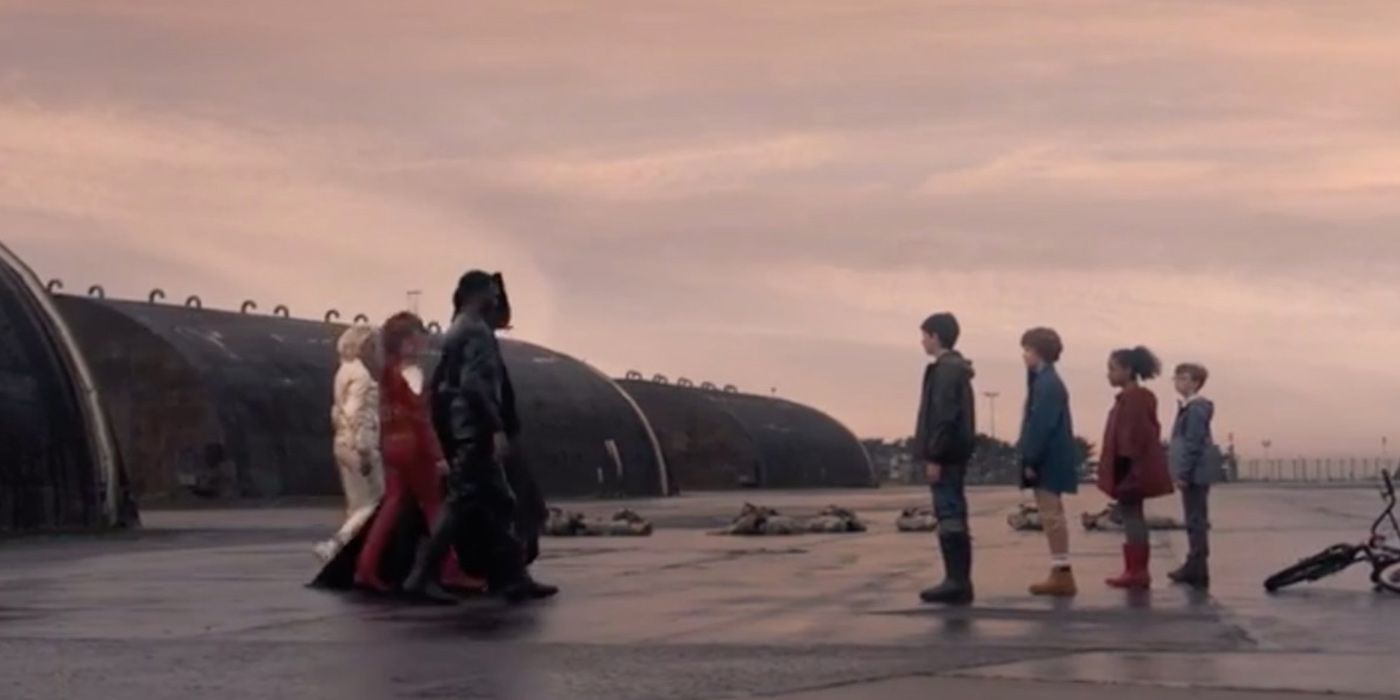
The Four Horsemen’s lack of origin, creator or master comes heavily into play in their ultimate defeat. When they converge on the base with Adam, Aziraphale, Crowley, Sergeant Shagwell, Madame Tracy, Adam, the Them and Dog, Adam barely blinks. Even as War aims her fiery sword and tries to intimidate the antichrist and his three young friends Pepper, Brian and Wensleydale, God voiceovers that the figures sprang from human imagination, and Adam calmly pronounces them, “More like nightmares, really.” Each of his friends confronts three of the horsemen in turn, each saying they believe in the opposite of what War, Pollution and Famine stand for. Pepper grabs the flaming sword from War and says she believes in, “Peace, bitch” and War explodes into flames. Wensleydale picks up the sword and confronts Pollution, exclaiming his belief in a clean world, and she disappears, her crown falling to the ground. Finally, Brian confronts Famine saying he believes in “food. And a healthy lunch,” and poof goes Famine.
Death isn’t so easily dispatched, mostly because Death isn’t something within human control, and as such remains a necessary – if frightening and mostly unwelcome – part of creation. He disappears, but not without promising that the Horsemen aren’t fully gone and would return again someday – again, not entirely surprising considering the human capacity to destroy matches our ability to create.
But despite it not being the most definitive defeat of the Four Horsemen, Adam, Pepper, Brian and Wensleydale’s victory serve to illustrate a central theme of Good Omens – that religion is human-made and helps manifests all the evil it wards us away from. Humans have the power to eliminate war, famine, and pollution the same way they did pestilence, and it has nothing to do with their allegiance to any particular deity.
The defeat of the Horsemen by simple conviction in human goodness throws off the restrictive idea of Original Sin that chained humans to religion as a means of rising above their inherently flawed state – when Neil Gaiman said he was aware the series would offend a good deal of people, this might have been part of what he meant. Adam and his friends serve as proof that humans have the capacity to rise above worldly temptation without depending on religion as a necessity. That said, the existence of the Four Horsemen and Death’s promise that they aren’t gone for good is also a reminder that this isn’t a battle that’ll ever end.
